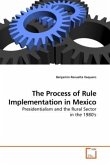This research examines relations between governmental bureaucracies, which have to manage social programs, and community-based organizations, involved with the implementation of social programs. Where CBOs have emerged as an option for dealing with complex social problems requiring flexibility and participation, and where governmental agencies retain a dominant role in the control of resources for those projects, the impact on the CBOs ranges between two extremes. At one extreme, the CBO might collapse due to increased bureaucratization imposed by government agencies. At the other extreme, the CBO might be legitimized by the bureaucratic and political establishment, allowing the survival of the CBO as an autonomous and flexible organization. Between these two extremes, several intermediate outcomes are also possible. This book presents four case studies that demonstrates underlying causal dynamics that help determine various outcomes between the two extremes. Practical implications for promoting successful relationships between bureaucracies and CBOs are discussed, along with implications for future research.








